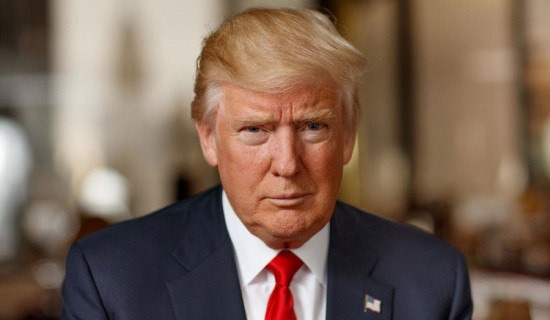- Sunday, 15 February 2026
Coalition Unity Under The Strain?
One and a half months after the five-party coalition government was formed, it is still struggling to come out of teething troubles. Prime Minister Pushpa Kamal Dahal Prachanda had himself aired his frustration about the bickering between the alliance partners. Talking with the leaders of CPN-Maoist Centre visiting his official residence at Baluwatar, Prachanda said that he got disappointed as he attempted to plug a hole in the coalition. Two developments have put the PM in a bind. One is Deputy Prime Minister and Home Minister Rabi Lamichhane’s alleged involvement in the abuse of cooperatives funds. Second is the growing hostility between the CPN-UML and CPN-Unified Socialist (US). These two issues have slowed down the pace of performance of the government.
Mistrust among the allies has increased, with the breaking and making of governments in provinces. Their feud came to the fore as they divided over the appointment of the Chief Minister (CM) in Sudurpaschim Province. Initially, there was an agreement to give the CM of the province to the Unified Socialist. The situation turned tricky when the provincial lawmakers of the Nagarik Unmukti Party (NUP) divided into two factions - one aligning with the ruling alliance and the other with the opposition Nepali Congress (NC) – while forming the government. In order to mitigate the tussle with the NUP, Prachanda and UML chair KP Sharma Oli decided to allot the provincial chief to the former.
Breach of deal
However, it amounted to a breach of a deal to award the CM post to the Unified Socialist. Its chairman Madhav Kumar Nepal blew a fuse and walked out a meeting with Prachanda and Oli at Baluwatar after his party was denied the post. Then, the Sudurpaschim lawmakers of Unified Socialist made a twisting move and backed a rebel lawmaker of NUP for the CM, with the support of NC. This triggered a ripple in the centre, forcing the Maoist Centre and UML to throw support behind Unified Socialist lawmaker Dirgha Sodari to become the CM much to the chagrin of Oli. Sodari was removed from the post of provincial minister over the former’s lewd conversation with a female party worker when Oli headed erstwhile NCP-led government. Oli had to support Sodari for the sake of the coalition government.
Amidst the heightened tension, Nepal held talks with NC president Sher Bahadur Deuba on the possibility of forging collaboration for the formation of government in Sudurpashcim. This also shocked Prachanda and Oli. This impelled Oli to soften his tone against Unified Socialist which he accused of being an anarchist and favouring the rightist forces. While addressing a party meeting, he also spoke against the left unity. “The left unity neither enables to form the government, nor does it help govern the country,” he said. This is an unexpected remark from the head of the largest communist party. This also shows his reluctance to learn from the party’s huge loss in the last elections. The communist votes largely declined when they contested the polls separately. The NC emerged as the largest party while the Rastriya Swatantra Party (RSP) rose to the national scene and Rastriya Prajatantra Party (RPP) widened its electoral base.
Oli’s remark has thrown cold water on the attempts of those who have been advocating for the broader left alliance in the country. Unified Socialist’s respected leader Jhalanath Khanal has been batting for unity among the communists, arguing that the formation of left-dominated coalition has prepared the ground for it but Oli-Nepal tussle has dampened the prospect of the left alliance deemed essential to build socialism-oriented economy and welfare state as envisioned by the constitution. There was a ray of hope for left unity when Oli and Prachanda went to meet Nepal at the latter’s residence, seeking his support to cement the new coalition. It was assumed that Oli and Nepal wiped the slate clean. But Oli’s unwillingness to go with the splinter group implies that a broader left alliance appears to be unlikely at least in the near future. The scenario may be worse if Nepal is further pushed to the wall.
House deadlock
Meanwhile, the coalition is not seeing a way out of the deadlock in the House of Representatives (HoR). The NC has been disrupting the House proceedings, demanding an investigation into the RSP chair and Home Minister Lamichhane's suspected role in the misappropriation of cooperatives money. The NC is raising this issue with a view to upset the current alliance. If the government is compelled to form a parliamentary probe panel, Home Minister has to resign from the post, which means the pull out of his party from the government, resulting in the eventual collapse of the coalition. Lamichhane has himself warned of quitting the government if the House committee is constituted. If the NC succeeds in indicting Lamichhane, this will also give a big respite to the grand old party because the RSP that largely banks on his charismatic leadership has the capacity to dismantle former's strongholds.
The NC is seemingly trying to 'utilise' the Unified Socialist to foil this coalition and create the new one minus the Maoist Centre, UML and RSP. The NC leaders are also making backstage efforts to forge alliance with the UML. This sort of political one-upmanship is not propitious for the republican federal system. The parties' futile gambit to depose one coalition and build another with no clear ideological differences will only alienate the masses. The nation needs a stable government capable of handling the domestic problems and geopolitical penetration so that it can achieve inclusive growth and execute independent foreign policy.
(The author is Deputy Executive editor of this daily.)

















